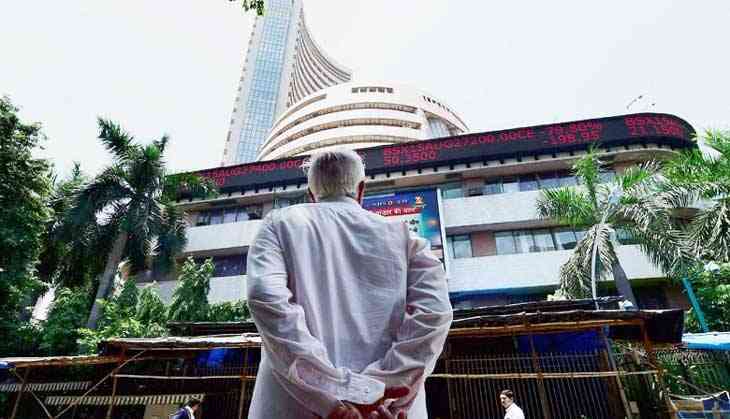Fed rate hike powers Sensex to new high

India's bellwether stock indices climbed new highs on Thursday after the United States Federal Reserve raised interest rates by 0.25%, as expected, and raised hopes of two more hikes this year. The accommodative stance – high liquidity – pushed the dollar down.
Though Wall Street was expecting one more hike, the increased rates and the cheaper greenback charged up the US market, and later Asian stocks, which were at an 18-month high. The positive sentiment rolled over to India, pushing the NSE Nifty 50 to a record 9152.90 points. The BSE Sensex touched a record 29,614.79 points.
The mood on Dalal Street is bullish. Most brokers are advising buying on dips, if any. The Nifty 50 surpassed 9150-level ahead of GST Council meet. The rally was backed by banking and financials, technology, auto, pharma and metals stocks. At 12.54 pm, Sensex was up 0.45% at 29,530 points while the Nifty was up 0.56% at 9,135.75 points.
The Fed's move raised hopes that the US interest rate cycle was surely moving north, albeit at a slower pace. Meanwhile, another reason for the softer dollar was the results of the Dutch elections. Exit polls indicated a comfortable win by the prime minister over his far-right rival which established that the Netherlands will continue to remain in the economic bloc of the European Union, strengthening the common currency.
Retail investors cashing out
The rally in Indian equities that started soon after the balanced budget, however, is failing to inject enthusiasm in retail investors.
As per the exchange data, institutional investors (foreign as well as domestic) are buying in stocks but clients registered with brokers are selling.
BSE data shows that clients have sold shares worth Rs 2,404 crore in the market during the month of March. The figure is more than three times at Rs 7,983 crore in the calendar year 2017.
Similarly, NSE clients have sold shares worth Rs 2,647 crore. Compared to this, foreign institutional investors have pumped in Rs 13,400 crore till Wednesday in Indian equities.
Mutual funds that were buying for seven straight months since October are also booking profits as the markets are recovering from lows suffered in November post the noteban announcement.
Challenges ahead
Indian equities will need to overcome certain challenges to continue the bull run above the all-time highs. Positive sentiments and liquidity are ample to support any fall. However, profitability and earnings growth are key for investors to buy shares.
Decisive mandate for the Modi regime in the recently concluded Assembly elections is being seen as a major trigger by investors. They are hoping that the government will unleash economic reforms that will trigger investment and consumption – the two key elements that have been subdued since the last two years.
Another key element in all this is the stable interest rate environment in the country. As base effect for the wholesale price index is declining, it is likely to push headline inflation up, higher than the projected trajectory of the Reserve Bank of India.
The central bank in the country has already changed its stance from accommodative liquidity to a neutral one. Any spike in inflation could start a reversal in the present benign interest rates, further hurting consumption.
In simple terms, all triggers or policy moves that support investment and consumption are likely to receive cheers from Dalal Street. On the other hand, any negative impact on any factor that determines corporate earnings would trigger a correction in the stock markets.
First published: 16 March 2017, 13:03 IST
